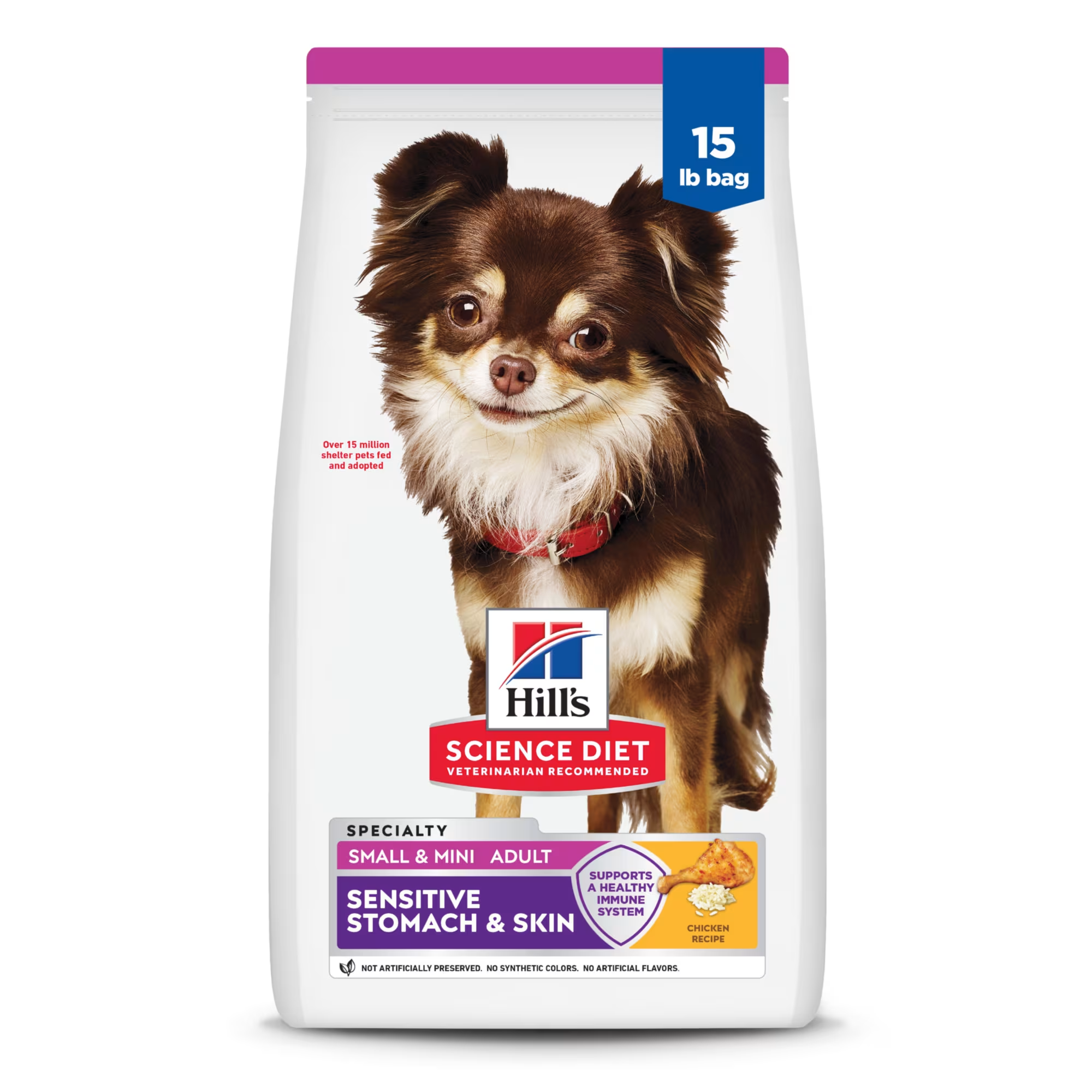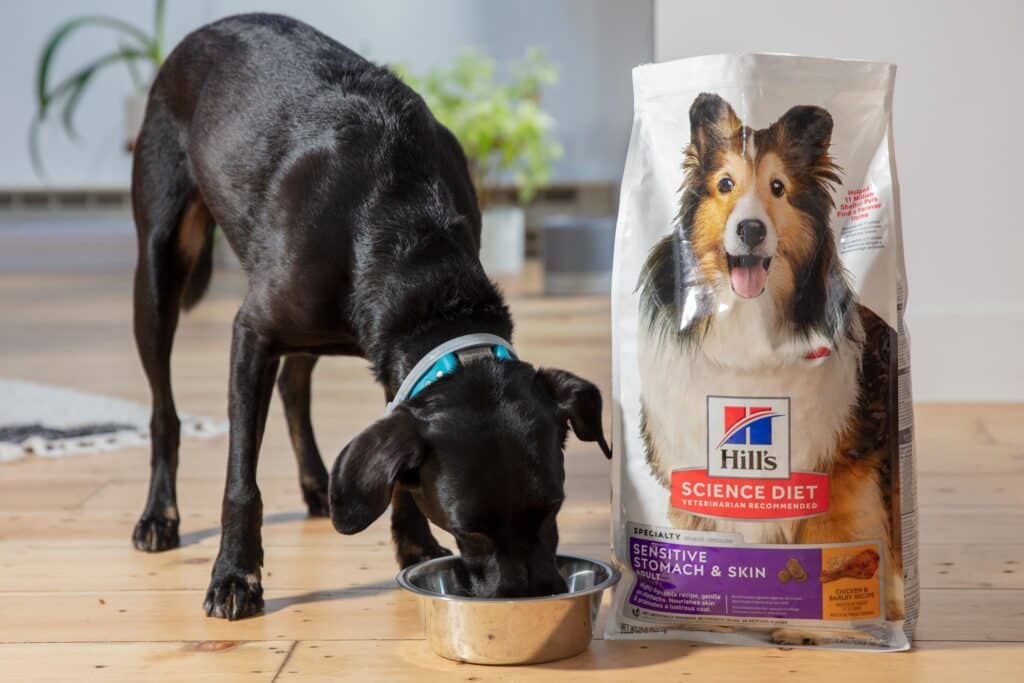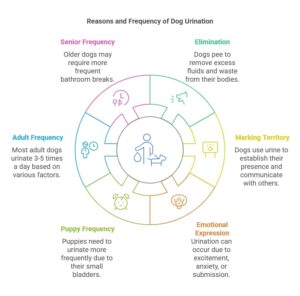Sensitive stomach dog food helps alleviate digestive issues in dogs with sensitive stomachs. It promotes better digestion and overall well-being.
Dogs with sensitive stomachs often experience discomfort, such as vomiting, diarrhea, or gas. Sensitive stomach dog food contains easily digestible ingredients and limited additives to minimize the risk of gastrointestinal upset. These specialized diets usually include high-quality protein sources, healthy fats, and essential nutrients, ensuring balanced nutrition.
Many formulas also incorporate prebiotics and probiotics to support gut health. By choosing the right sensitive stomach dog food, pet owners can help their furry friends enjoy their meals without digestive distress. Always consult a veterinarian for personalized dietary advice tailored to your dog's specific needs.

Credit: www.petco.com
Table of Contents
ToggleWhat Is Sensitive Stomach Dog Food
Dogs with sensitive stomachs need special care. Sensitive stomach dog food helps them stay healthy. It includes ingredients that are easy to digest. This type of food reduces stomach issues for dogs.
Key Ingredients
Sensitive stomach dog food has special ingredients. These ingredients are chosen to aid digestion. Here are some important ones:
- Rice and oatmeal – They are easy to digest.
- Pumpkin – Helps regulate digestion.
- Probiotics – Good bacteria for the gut.
- Prebiotics – Food for good bacteria.
- Lean proteins – Like chicken and fish.
- Fiber-rich vegetables – Such as carrots and sweet potatoes.
These ingredients help keep a dog's stomach calm. Probiotics and prebiotics improve gut health. Lean proteins provide necessary nutrients without causing issues. Fiber-rich vegetables add bulk and aid digestion.
Common Brands
Many brands offer sensitive stomach dog food. Here are some popular ones:
| Brand | Key Feature |
|---|---|
| Hill's Science Diet | Contains prebiotics and probiotics. |
| Royal Canin | Specific formulas for sensitive digestion. |
| Blue Buffalo | Uses natural ingredients. |
| Purina Pro Plan | Includes rice and oatmeal. |
| Wellness Simple | Limited ingredients for fewer allergens. |
Hill's Science Diet is known for its balanced formulas. Royal Canin offers tailored options. Blue Buffalo uses high-quality natural ingredients. Purina Pro Plan focuses on digestible grains. Wellness Simple minimizes allergens with fewer ingredients.

Credit: www.amazon.com
Signs Of A Sensitive Stomach
Dogs with sensitive stomachs need special care. They may have trouble with regular food. Knowing the signs can help keep them healthy. Sensitive stomach dog food can ease their problems. It's important to spot the signs early.
Digestive Issues
Many dogs with sensitive stomachs show digestive problems. These issues can cause discomfort for your dog. Common signs include:
- Vomiting: This can happen often and without warning.
- Diarrhea: Loose stools may occur frequently.
- Gas: Your dog may pass gas more than usual.
- Bloating: A swollen belly can be a sign of trouble.
Digestive issues can also affect your dog's energy levels. They may feel tired and lack interest in play. Watching for these signs can help you take action quickly. Consult your vet if you notice any of these symptoms. They can recommend the right sensitive stomach dog food.
Behavioral Changes
Dogs with stomach issues may act differently. These changes can be a clue to their discomfort. Some common behavioral changes include:
- Restlessness: Your dog may have trouble settling down.
- Lack of appetite: They might not want to eat their regular food.
- Whining: Your dog may whine more than usual.
- Licking lips: This can be a sign of nausea.
Behavioral changes can be subtle but important. Pay attention to how your dog acts. These signs can help you identify a sensitive stomach. A special diet can ease their discomfort and improve their quality of life.
Choosing The Right Food
Choosing the right food for dogs with sensitive stomachs is crucial. Dogs with sensitive stomachs need special care. The right food can help them feel better and stay healthy. Sensitive stomach dog food is made to be gentle. It helps in digestion and avoids upset tummies. This guide will help you understand what to look for.
Nutritional Needs
Dogs with sensitive stomachs have special nutritional needs. Balanced nutrition is key. It helps maintain their overall health. Here are some important points to consider:
- High-Quality Protein: Proteins like chicken, fish, and lamb are good choices.
- Easy-to-Digest Carbohydrates: Oats, rice, and barley are gentle on the stomach.
- Healthy Fats: Omega-3 and Omega-6 fatty acids support skin and coat health.
Vitamins and minerals are also crucial. They support immune function and overall well-being. Look for foods with:
- Vitamin E: Supports the immune system.
- Vitamin B: Helps with energy levels and metabolism.
- Calcium and Phosphorus: Essential for strong bones and teeth.
Probiotics are beneficial as well. They aid in digestion and maintain gut health. Always consult your vet for personalized advice.
Ingredient Quality
High-quality ingredients are essential for sensitive stomach dog food. They make digestion easier and prevent stomach issues. Here's what to look for:
- Whole Proteins: Use real meat like chicken, beef, or fish.
- Limited Ingredients: Fewer ingredients mean less chance of an upset stomach.
- No Fillers: Avoid corn, soy, and wheat. These can irritate the stomach.
Natural preservatives are better than artificial ones. Look for foods with:
- Vitamin E: As a natural preservative.
- Rosemary Extract: Helps keep the food fresh.
Artificial colors and flavors should be avoided. They can cause allergies and stomach issues. Always read the labels carefully. Choose foods with simple, natural ingredients.

Credit: www.amazon.com
Homemade Dog Food Options
Many dogs have sensitive stomachs. This can make feeding them a challenge. Homemade dog food is a great option. You can control what goes into the food. This ensures your dog eats only the best ingredients. It's also a way to avoid harmful additives. Let's explore some easy recipes and how to keep the nutrition balanced.
Easy Recipes
Simple homemade recipes can help your dog with a sensitive stomach. Here are a few easy ones to try:
- Chicken and Rice: Boil chicken breast and plain white rice. Mix them together. This is gentle on the stomach.
- Turkey and Sweet Potato: Cook ground turkey and mashed sweet potatoes. This is tasty and healthy.
- Beef and Carrots: Brown ground beef and steam carrots. Mix them for a nutritious meal.
Here is a simple table showing the ingredients and cooking steps:
| Recipe | Ingredients | Steps |
|---|---|---|
| Chicken and Rice | Chicken breast, white rice | Boil chicken, cook rice, mix together |
| Turkey and Sweet Potato | Ground turkey, sweet potato | Cook turkey, mash sweet potatoes, mix |
| Beef and Carrots | Ground beef, carrots | Brown beef, steam carrots, mix |
These recipes are easy to prepare. They use simple ingredients. Your dog will love them. More importantly, they are gentle on the stomach.
Nutritional Balance
It's important to ensure nutritional balance in your dog's diet. Dogs need proteins, fats, carbs, vitamins, and minerals. Here are some tips to balance homemade meals:
- Proteins: Include meats like chicken, turkey, or beef. Eggs are a great source too.
- Carbohydrates: Use rice, sweet potatoes, or oats. These are gentle on the stomach.
- Fats: Add small amounts of fish oil or olive oil. These are healthy fats.
- Vitamins and Minerals: Include vegetables like carrots, peas, and spinach. These are rich in vitamins.
Here is a table to help you understand the nutrient sources:
| Nutrient | Source |
|---|---|
| Proteins | Chicken, turkey, beef, eggs |
| Carbohydrates | Rice, sweet potatoes, oats |
| Fats | Fish oil, olive oil |
| Vitamins and Minerals | Carrots, peas, spinach |
Balancing nutrients is key to a healthy diet. Make sure to include a variety of foods. This ensures your dog gets everything they need. A balanced diet helps keep your dog healthy and happy.
Feeding Tips For Sensitive Stomachs
Dogs with sensitive stomachs need special care. Their food should be gentle and nourishing. Feeding tips can help keep their tummies happy and healthy. This guide will help you with portion control and feeding schedules for sensitive stomachs.
Portion Control
Portion control is key for dogs with sensitive stomachs. Feeding too much can upset their tummies. Feeding too little can leave them hungry and weak. Here are some tips for managing portions:
- Start with small meals: Small meals are easier to digest. They put less strain on a dog's stomach.
- Check food labels: Labels often have feeding guidelines. Follow these to give the right amount.
- Use a measuring cup: Measuring cups help give the exact amount of food. This avoids overfeeding or underfeeding.
- Adjust as needed: Watch your dog's weight and energy levels. Adjust portions if they gain or lose weight.
Keeping track of your dog's weight is important. A table can help you monitor their progress:
| Week | Weight (lbs) | Notes |
|---|---|---|
| 1 | 20 | Starting weight |
| 2 | 20.5 | Stable weight |
| 3 | 21 | Gaining weight |
Feeding Schedule
A regular feeding schedule is crucial for dogs with sensitive stomachs. Dogs thrive on routine. A consistent schedule helps their digestion. Here are some tips to create a feeding schedule:
- Feed at the same times: Pick times that fit your routine. Stick to these times every day.
- Divide meals: Split their daily food into two or three meals. This helps with digestion and keeps their energy steady.
- Avoid late-night meals: Feeding late can cause discomfort. Finish feeding at least a few hours before bedtime.
- Keep track: Use a feeding chart to monitor meal times and amounts:
| Time | Amount (cups) |
|---|---|
| 8:00 AM | 1 cup |
| 12:00 PM | 0.5 cup |
| 6:00 PM | 1 cup |
Creating a schedule and sticking to it can make a big difference. It can help keep your dog's sensitive stomach calm and happy.
Consulting Your Vet
Dogs with sensitive stomachs need special care. Sensitive stomach dog food can help ease their discomfort. Consulting your vet is crucial before making any changes to your dog's diet. Vets can provide expert advice and ensure your pet's health is not compromised.
When To Seek Help
It's important to know when to seek help for your dog's sensitive stomach. If your dog shows signs of distress, it's time to act. Common symptoms include:
- Frequent vomiting
- Diarrhea
- Loss of appetite
- Excessive gas
- Abdominal pain
These symptoms can indicate a more serious issue. A vet can diagnose the problem and recommend the best course of action. Early intervention can prevent further complications.
Sometimes, a diet change is necessary. Sensitive stomach dog food can ease symptoms. Your vet can guide you on the best options available. Regular check-ups ensure your dog's health is monitored. This helps in adjusting the diet as needed.
Testing For Allergies
Testing for allergies is a key step in managing a sensitive stomach. Allergies can cause discomfort and affect your dog's overall health. Common allergens in dog food include:
- Grains
- Dairy
- Beef
- Chicken
- Soy
Vets can perform tests to identify specific allergens. Elimination diets are often used to pinpoint the culprit. This involves removing potential allergens from your dog's diet. Foods are reintroduced one by one, watching for reactions.
Blood tests can also identify allergens. Accurate diagnosis helps in choosing the right food. Specialized dog foods are available that exclude common allergens. These foods provide balanced nutrition without causing discomfort.
Regular follow-ups with your vet ensure the chosen diet works well. Ongoing monitoring is essential to maintain your dog's health. Adjustments to the diet may be needed over time. Your vet can provide guidance throughout this process.
Frequently Asked Questions
What Is Sensitive Stomach Dog Food?
Sensitive stomach dog food is specially formulated to be gentle on a dog's digestive system.
What Ingredients Help Sensitive Stomachs?
Ingredients like rice, pumpkin, and probiotics can help soothe a sensitive stomach in dogs.
Can Sensitive Stomach Dog Food Prevent Vomiting?
Yes, it can help reduce vomiting by being gentle on the digestive system and avoiding common irritants.
How To Identify Sensitive Stomach In Dogs?
Look for symptoms like frequent vomiting, diarrhea, and signs of discomfort after eating.
Is Grain-free Food Better For Sensitive Stomachs?
Grain-free food can sometimes be easier to digest, but it depends on the individual dog's needs.
Are There Hypoallergenic Options For Dogs?
Yes, some sensitive stomach dog foods are also hypoallergenic to minimize allergic reactions.
How To Transition To Sensitive Stomach Food?
Gradually mix the new food with the old over a week to avoid digestive upset.
Conclusion
Choosing the right sensitive stomach dog food can transform your pet's health. Always consult your vet for recommendations. Opt for high-quality ingredients and monitor your dog's reactions. A happy, healthy dog begins with a balanced diet. Prioritize their needs and enjoy a joyful companionship.














